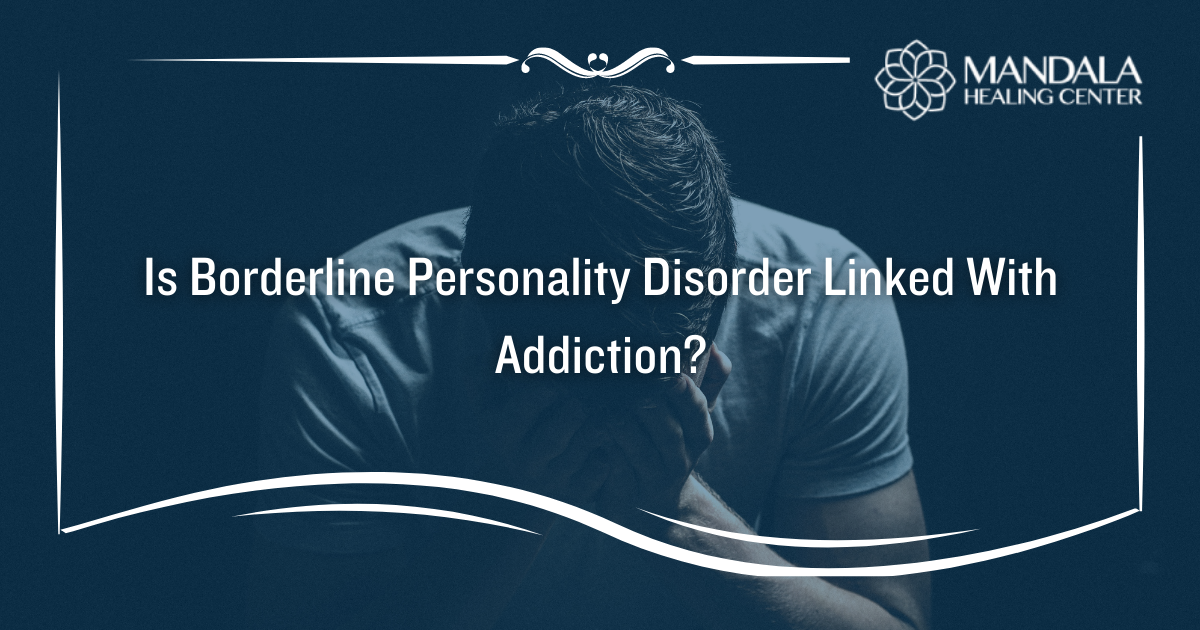Borderline personality disorder (BPD) is a mental health condition that can impact many areas of your life. This condition impacts how you think and feel about yourself and others, often causing self-image issues, difficulty managing emotions, and behaviors, and a pattern of unstable relationships. The instability associated with borderline personality disorder tends to cause people to seek out forms of self-medication, ultimately leading to addiction.
When you suffer from borderline personality disorder and addiction, you must receive treatment for both conditions at the same time. If you only treat substance abuse issues, the untreated symptoms of your borderline personality disorder will cause you to seek comfort from drugs and alcohol again, leading to a relapse.
Understanding how to recover from a co-occurring borderline personality disorder and addiction requires you to become familiar with how the two conditions are connected.
What is Borderline Personality Disorder (BPD)?
Borderline personality disorder (BPD) belongs to a cluster of personality disorders associated with emotional, erratic, and dramatic behavior. If you struggle with BPD, you probably have unstable relationships with others, poor impulse control, negative self-image, and heightened impulsivity. Borderline personality disorder severely impacts your ability to regulate your emotions so it makes you prone to impulsive behaviors, poor self-image, and unstable relationships.
Some people believe that borderline personality disorder is directly caused by environmental factors but others believe it is a combination of past experiences, genetics, poor brain development, and a lack of certain neurotransmitters in the brain. Studies have found that people with BPD lack serotonin, the neurotransmitter responsible for happiness and reward.[1]
Common environmental causes of borderline personality disorder include:
- Being a victim of emotional, physical, or sexual abuse
- Being exposed to long-term fear or distress as a child
- Experiencing neglect from one or more parent
- Growing up with another family member who has a serious mental health condition, like bipolar disorder or substance use disorder
The Symptoms of Borderline Personality Disorder
People with borderline personality disorder often experience extreme fluctuations in how they see themselves and others. For example, they may idolize their romantic partner and then devalue them within the same day. This fluctuation between intense hatred and extreme intimacy can make it difficult for people with BPD to maintain close relationships.
Symptoms include:[2]
- Engaging in impulsive and potentially harmful behaviors, like substance abuse, reckless spending, binge eating, or sex
- Experiencing persistent feelings of emptiness or emotional numbness
- Going to extremes to prevent abandonment, whether it is real or perceived
- Having a persistently unstable sense of self or self-image
- Highly intense mood swings that last for a couple of hours or days
- Strong and intense periods of inappropriate anger
- Recurring suicidal threats, gestures, or behaviors of self-harm
- Patterns in interpersonal relationships where the individual alternates between idealizing and devaluing the other person
- Episodes of hopelessness, irritability, or anxiety that last a few hours to a couple of days
- Periods of stress-related paranoia or dissociative symptoms
What is the Connection Between Borderline Personality Disorder and Addiction?
Borderline personality disorder is heavily associated with substance abuse and addiction. According to the National Library of Medicine, about 75% of people with BPD have struggled with a substance use disorder at some point in their lives.[3]
While borderline personality disorder is not caused by addiction and vice versa, both diseases share common risk factors. For example, both conditions can be caused by environmental factors like experiencing trauma at a young age. Additionally, you can inherit a predisposition to developing borderline personality disorder and addiction if your parents suffer from similar issues.
In addition to common risk factors, people with BPD may develop an addiction due to self-medication. The unstable moods and emotions that are associated with this condition can be extremely difficult to cope with, causing you to begin self-medicating your emotions with alcohol or drugs. Also, the impulsivity associated with BPD can increase your likelihood of using substances heavily, increasing your chances of developing a substance use disorder.
Risk Factors for Co-Occurring Borderline Personality Disorder and Addiction
If you struggle with borderline personality disorder and addiction, it is likely that you have experienced some form of trauma in the past. Being in an abusive relationship, suffering from neglect as a child, or experiencing any prolonged emotionally distressing events within your life could result in the development of both conditions. As a result, recovering from comorbid addiction and BPD often includes extensive trauma therapy.
Some of the risk factors that make you more susceptible to developing co-occurring BPD and addiction include:
- Abandonment in childhood or adolescence
- Disrupted family life
- Poor communication in the family
- Sexual, physical, or emotional abuse
- Genetic predispositions to BPD, addiction, or both
- Experiencing trauma in childhood
- Being exposed to severe mental illness or substance abuse as a child
- Not receiving proper treatment for underlying mental health issues or trauma
- Using substances at a young age
Get Help Now
If you or a loved one suffer from BPD and substance use disorder, it’s time to seek help. Dealing with one of these conditions on its own is difficult enough, but the co-occurrence of BPD and addiction can make it extremely hard for you to function in your daily life.
Dual diagnosis treatment programs like Mandala Healing Center can provide you with the support and therapy you need to overcome both conditions. Contact us today to get started.
References:












